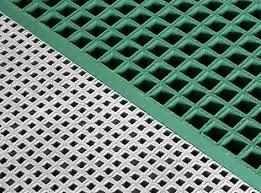
-
 Afrikaans
Afrikaans -
 Albanian
Albanian -
 Amharic
Amharic -
 Arabic
Arabic -
 Armenian
Armenian -
 Azerbaijani
Azerbaijani -
 Basque
Basque -
 Belarusian
Belarusian -
 Bengali
Bengali -
 Bosnian
Bosnian -
 Bulgarian
Bulgarian -
 Catalan
Catalan -
 Cebuano
Cebuano -
 China
China -
 China (Taiwan)
China (Taiwan) -
 Corsican
Corsican -
 Croatian
Croatian -
 Czech
Czech -
 Danish
Danish -
 Dutch
Dutch -
 English
English -
 Esperanto
Esperanto -
 Estonian
Estonian -
 Finnish
Finnish -
 French
French -
 Frisian
Frisian -
 Galician
Galician -
 Georgian
Georgian -
 German
German -
 Greek
Greek -
 Gujarati
Gujarati -
 Haitian Creole
Haitian Creole -
 hausa
hausa -
 hawaiian
hawaiian -
 Hebrew
Hebrew -
 Hindi
Hindi -
 Miao
Miao -
 Hungarian
Hungarian -
 Icelandic
Icelandic -
 igbo
igbo -
 Indonesian
Indonesian -
 irish
irish -
 Italian
Italian -
 Japanese
Japanese -
 Javanese
Javanese -
 Kannada
Kannada -
 kazakh
kazakh -
 Khmer
Khmer -
 Rwandese
Rwandese -
 Korean
Korean -
 Kurdish
Kurdish -
 Kyrgyz
Kyrgyz -
 Lao
Lao -
 Latin
Latin -
 Latvian
Latvian -
 Lithuanian
Lithuanian -
 Luxembourgish
Luxembourgish -
 Macedonian
Macedonian -
 Malgashi
Malgashi -
 Malay
Malay -
 Malayalam
Malayalam -
 Maltese
Maltese -
 Maori
Maori -
 Marathi
Marathi -
 Mongolian
Mongolian -
 Myanmar
Myanmar -
 Nepali
Nepali -
 Norwegian
Norwegian -
 Norwegian
Norwegian -
 Occitan
Occitan -
 Pashto
Pashto -
 Persian
Persian -
 Polish
Polish -
 Portuguese
Portuguese -
 Punjabi
Punjabi -
 Romanian
Romanian -
 Russian
Russian -
 Samoan
Samoan -
 Scottish Gaelic
Scottish Gaelic -
 Serbian
Serbian -
 Sesotho
Sesotho -
 Shona
Shona -
 Sindhi
Sindhi -
 Sinhala
Sinhala -
 Slovak
Slovak -
 Slovenian
Slovenian -
 Somali
Somali -
 Spanish
Spanish -
 Sundanese
Sundanese -
 Swahili
Swahili -
 Swedish
Swedish -
 Tagalog
Tagalog -
 Tajik
Tajik -
 Tamil
Tamil -
 Tatar
Tatar -
 Telugu
Telugu -
 Thai
Thai -
 Turkish
Turkish -
 Turkmen
Turkmen -
 Ukrainian
Ukrainian -
 Urdu
Urdu -
 Uighur
Uighur -
 Uzbek
Uzbek -
 Vietnamese
Vietnamese -
 Welsh
Welsh -
 Bantu
Bantu -
 Yiddish
Yiddish -
 Yoruba
Yoruba -
 Zulu
Zulu
frp pipes and fittings for ship building
The Role of FRP Pipes and Fittings in Shipbuilding
In the maritime industry, the materials used in shipbuilding are crucial for ensuring durability, safety, and efficiency. Among the various materials, Fiberglass Reinforced Plastic (FRP) has emerged as a highly favored choice for pipes and fittings. FRP’s unique properties make it particularly suited for the harsh marine environment, providing a range of advantages that traditional materials cannot offer.
One of the most significant benefits of FRP pipes and fittings is their corrosion resistance. Ships operate in saline environments, where exposure to saltwater can lead to rapid deterioration of metal components. FRP, on the other hand, is resistant to corrosion, which greatly extends the lifespan of pipes and fittings and reduces maintenance costs over time. This feature is essential in ensuring that ships remain operational without frequent repairs or replacements.
Moreover, FRP materials are lightweight compared to conventional metal options, such as steel or aluminum. This lightweight nature has profound implications for shipbuilding, as it allows for more efficient weight distribution and improved fuel efficiency. Reducing the overall weight of a vessel can lead to lower fuel consumption, resulting in significant cost savings for ship operators over the life of the vessel.
frp pipes and fittings for ship building

The versatility of FRP also allows for a wide range of applications within shipbuilding. FRP pipes and fittings can be used in various systems, including water systems, wastewater treatment, fuel systems, and ventilation. They can be molded into intricate shapes, accommodating the specific requirements of different designs and layouts, which is particularly advantageous in the often-complicated architecture of ships.
Additionally, FRP is non-conductive, offering electrical insulation that is beneficial in certain applications where electrical interference could be a concern. Its ability to withstand extreme temperatures and pressures further solidifies FRP’s role as a reliable material choice in shipbuilding.
In conclusion, the integration of FRP pipes and fittings in shipbuilding marks a significant advancement in maritime technology. With their corrosion resistance, lightweight properties, and versatility, FRP materials contribute to more durable and efficient vessels, thereby supporting the growing demands of modern maritime operations. As shipyards continue to innovate, the use of FRP is expected to become increasingly prevalent, shaping the future of the marine industry.









